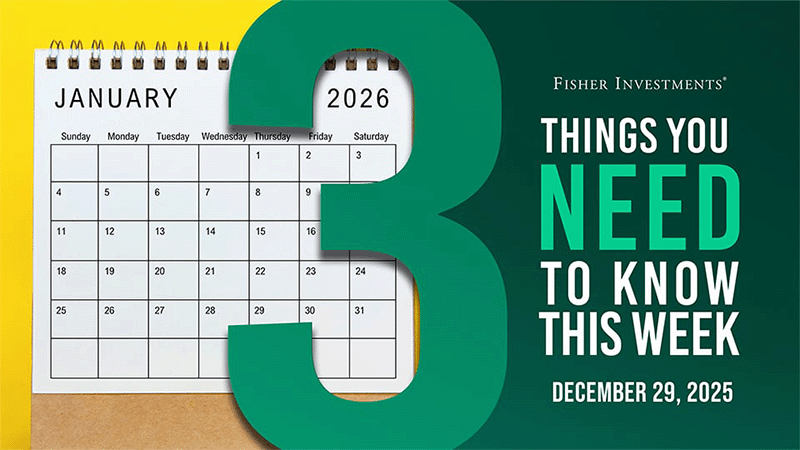Personal Wealth Management /
Putin’s Feeble, Timid Trade War
Russian President Vladimir Putin unveiled his own economic sanctions Thursday. What does his latest move mean for investors?
Russia fought back against tougher US and EU sanctions Wednesday, announcing new agricultural trade embargoes against countries who put the Kremlin on their naughty list. Within seconds, headlines warned of a trade war, Finland promised to seek EU "compensation" if the embargoes caused a crisis, and the EU braced for a fruit supply glut and collapsing prices. In our view, though, these reactions are overwrought. We won't argue Russia's move has zero economic impact, but with a $70 trillion-and-growing global economy, it takes far more than trade barriers against a few billion in foodstuffs to end a bull market.
Russia's new one-year ban on most meat, produce and dairy from the US, EU, Australia, Canada and Norway is the first embargo branded as sanctions retaliation, but it isn't the first attempt to swipe back. Russia already banned Polish apples, central European beef and threatened to bar McDonald's, citing health and safety concerns-long Putin's favorite way to poke Europe without running afoul of WTO rules. It hasn't much hurt Europe or other western economies in the past, and there is little chance it does so now.
Theoretically, an import ban could bite two ways. It could rob local producers of an end market, hitting exports and total output. Or, according to many in Europe, it could create a supply glut at home, driving down prices and wreaking havoc. But in reality, this hasn't happened. Consider the humble chicken. Russia is the US's second-largest export market for chickens. Moscow has banned US chickens three times since 2002-and chicken prices here haven't collapsed. Foster Farms didn't file Chapter 11. So it goes, too, for the many European products Russia has barred in recent years, Ukrainian chocolate, American beef and so many others.
The impact on trade should be similarly minimal. As we wrote in more detail here, Russia and the US don't trade much. US exports to Russia have been declining since 2012 (as Russia's economy has slowed), but total US trade has grown fine. Exports to Russia dropped 34% in June, but overall US exports still hit an all-time high. Canada's C$260 million in agricultural exports to Russia in 2013 were about 1% of the country's C$25.5 billion in total ag exports.[i] That C$260 million is less than half the C$563 million total from 2012, and Canada sailed through fine. The A$400 million in agricultural goods shipped from Australia to Russia in 2013 was 1.1% of Australia's A$38.3 billion in total agriculture-related exports. See a pattern?
For Norway, the issue is fish. Russia is Norway's biggest salmon customer, accounting for about one tenth of the country's fishery product exports and buying roughly $100 million last year. Publicly traded Norwegian salmon producers took a big hit on Thursday, which isn't great for them or Norway, but these are a decidedly tiny portion of the global economy (0.83%).
What about the EU? Russia is its second-largest trade partner! But here, too, scale is everything. In 2013, the EU shipped €8.4 billion in agricultural and fishery products to Russia. €12.1 billion if you include livestock, which Russia's edict doesn't outright ban, but you never know. That's 10% of total EU agri-food exports, which isn't small-again, there probably will be some pain locally. But it's also only 0.4% of the EU's €2.84 trillion in total exports. The latter is what matters for global markets.
If Europe were an agrarian economy, Putin's move would bite. But even the less developed European economies rely on services and industry far, far more than farms. That Putin chose to hit ag, of all things, is telling. It's one thing to promise Russian people local farmers can fill the food shortfall that will inevitably be created by the import ban-the land is there, the farms are there, and the tax code can be tweaked (again!) to re-incentivize production. It's an entirely different game to try to replace western industrial and consumer goods. Or to find alternate oil and gas customers in a pinch. Putin is poking the west, not hitting where it hurts, and it's pretty clear why: This is simply all Russia's economy can bear. And even here, some suspect the move will hit Russians with significantly higher food prices, hurting consumers who are already grappling with 7.5% inflation.
This is why all those "trade war" fears are far off the mark. Yes, it's a tit-for-tat move, which is how trade wars usually start. But a severe trade war-something along the lines of the Smoot-Hawley blowback in the 1930s-would require significant escalation from here. If Putin were to raise embargoes that could do real damage, he'd basically commit economic suicide at home. If the worst he can do without causing a major recession is say no to apples and chicken, the likelihood this escalates into major trade barriers worldwide is basically nil.
If you would like to contact the editors responsible for this article, please message MarketMinder directly.
*The content contained in this article represents only the opinions and viewpoints of the Fisher Investments editorial staff.
Get a weekly roundup of our market insights
Sign up for our weekly e-mail newsletter.

You Imagine Your Future. We Help You Get There.
Are you ready to start your journey to a better financial future?

Where Might the Market Go Next?
Confidently tackle the market’s ups and downs with independent research and analysis that tells you where we think stocks are headed—and why.





